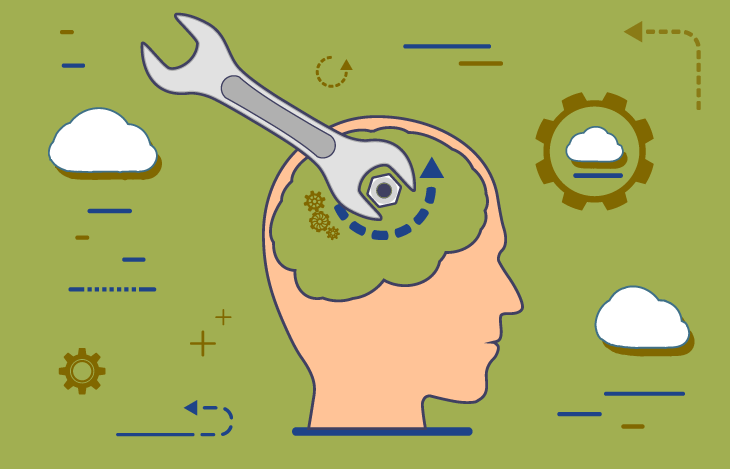
While mental illness is frequently considered the purview of psychologists and psychiatrists, criminal justice professionals often play an important role in the lives of those with mental illness and their recovery. The intersection between mental health and criminal justice is so important that some communities form crisis intervention teams (CIT), which are partnerships between law enforcement, emergency responders, and mental health providers. CIT members learn to identify the unique needs and behaviors of people with mental illness and connect them to resources that can help. They are trained to keep people with mental illness out of jail and get them into treatment, where they are more likely to experience recovery.
And yet, mental health myths remain. Understanding the truth behind these myths can help professionals be more effective when engaging with this community.
Types of Mental Illness
Common categories of mental illnesses include:
- Anxiety disorders, such as obsessive-compulsive disorder and panic disorder, may cause a response of fear and apprehension to certain objects or situations.
- Behavioral disorders, such as attention deficit hyperactivity disorder (ADHD) and oppositional defiant disorder (ODD), are diagnoses associated with children who demonstrate disruptive patterns for more than six months. These may cause problems at school or at home.
- Eating disorders, such as anorexia and bulimia, generate extreme emotions toward food and eating.
- Mood disorders, like bipolar disorder, depression, and seasonal affective disorder, could mean persistent feelings of sadness or fluctuations between moods.
- Personality disorders cause extreme inflexible personalities that can create issues with relationships. Borderline personality disorder is an example.
- Psychotic disorders, like schizophrenia, present symptoms such as hallucinations and delusions.
- Trauma and stress-related disorders, such as post-traumatic stress disorder (PTSD), occur after a person has experienced a traumatic event like abuse or violence. The individual may feel fear or stress well after the danger is past.
Mental Health Myth 1: Mental Disorders Are Rare
Reality: One in four people experience a mental disorder at some point.
Mental illness is more common than most perceive it to be. According to the World Health Organization, one in four adults will be affected by mental or neurological disorders at some point in their lives. About 450 million people worldwide have mental disorders. In the United States, one in 25 people live with a serious mental health condition, but only 60 percent seek treatment. Reasons for this vary from stigma to cost to the inability to find a suitable mental healthcare provider. And there can be serious consequences to a lack of treatment: Suicide is the 10th-leading cause of deaths (41,000) in the United States each year, according to the Department of Health and Human Services (HHS). Police officers, court officers, and advocates can improve outcomes for those with mental illness by facilitating connections to resources and treatment.
Mental Health Myth 2: Diminished Mental Health Causes Violence
Reality: Mental disorders increase the risk of becoming a crime victim, not a perpetrator.
People with mental illness are frequently portrayed in the media as violent or unstable, but the reality is vastly different. Only 3-5 percent of violent incidents can be attributed to a mental health episode, HHS says. Those with severe mental illness are actually 10 times more likely to be a victim of a violent crime than the general population and are more likely to hurt themselves than others. In the rare instances when mental illness increases interpersonal violence, awareness can curb such episodes from escalating. Trained criminal justice professionals may become involved and de-escalate or redirect and can help those with mental illness find treatment.
Mental Health Myth 3: There Is No Treatment for Mental Illness
Reality: Criminal justice professionals can serve as a conduit to help connect those with mental illness to resources that can help.
In spite of the best efforts and partnerships in the community, many people with mental illnesses don’t get the help they need because of the stigma associated with mental illness. They may believe it is a sign of weakness to ask for help. They may think acknowledgement of their illness will isolate them from their community, and they fear they’ll be seen as “crazy.” They may dismiss symptoms or not wish to be associated with the stereotype. But treatment is available and can be very effective, and criminal justice professionals can help connect those with mental illness to essential resources.
According to the International Association of Chiefs of Police, there are steps criminal justice professionals can take to help those with mental illness, including:
- Access to available support, such as local, state, and national resources
- Timely and accurate referrals to appropriate victim services, advocacy, and counseling
- Ensuring victims receive consistent information and continuity of services from initial response through the investigation and judicial processes
Criminal Justice Education at King University
While the role criminal justice professionals play in helping those with mental illness is not well-understood, it is critical. An online bachelor’s degree in criminal justice from King University can help. King University’s fully online degree focuses on restorative justice, which brings victims and offenders together, as well as the core concepts that are needed to succeed in a criminal justice career. Equipped with practical knowledge and a foundation in the theory behind criminal justice, King University graduates will be well-prepared to shape the criminal justice landscape.